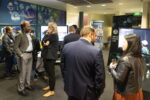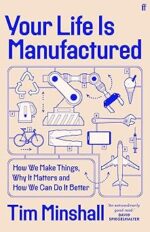Tapway expands into Indonesia
Tapway Sdn. Bhd., an emerging Vision AI platform developer, has announced the appointment of three prominent Indonesian companies — PT Innovation Cloud Services (ICS Compute), PT Metrodata Electronics, Tbk (Metrodata), and PT Syspex Multitech — as its official channel partners. The appointments were formalized through the signing of Memoranda of Understanding (MoUs) at the Embassy of Malaysia’s office in Jakarta recently. As channel partners, ICS Compute, Metrodata, and Syspex will be responsible for distributing SamurAI licenses, leading implementation efforts, and providing long-term support for customers in Indonesia. These agreements mark a significant milestone in Tapway’s regional expansion as an Independent Software Vendor (ISV), enabling localized distribution and deployment of its Vision AI solutions across Indonesia’s retail, manufacturing, logistics, FMCG, and smart infrastructure sectors. Tapway’s SamurAI Vision AI platform offers off-the-shelf and customizable AI models, with no coding required, to support compliance, productivity, safety, and customer experience enhancement. Lim Chee How, CEO of Tapway, said, “Indonesia represents one of Southeast Asia’s most promising markets for Vision AI. Our partnerships with ICS Compute, Metrodata, and Syspex are the result of two years of groundwork, mutual trust, and a shared vision to make AI adoption scalable and impactful. The MoUs are not just a formality, but they mark the start of real-world transformations across logistics, retail, and manufacturing landscapes in Indonesia.” PT Innovation Cloud Services (ICS Compute) will focus on deploying Vision AI in use cases that demand real-time automation and seamless system integration. The Company connects AI-powered camera data directly into business systems, enabling real-time responses, faster decisions, and measurable improvements across operations. Budhi Wibawa, CEO of ICS Compute, said, “We see Vision AI as a way to make operations smarter, not just by seeing, but by acting. By connecting ground-level insights to real-time systems, we help businesses respond faster and work […]









